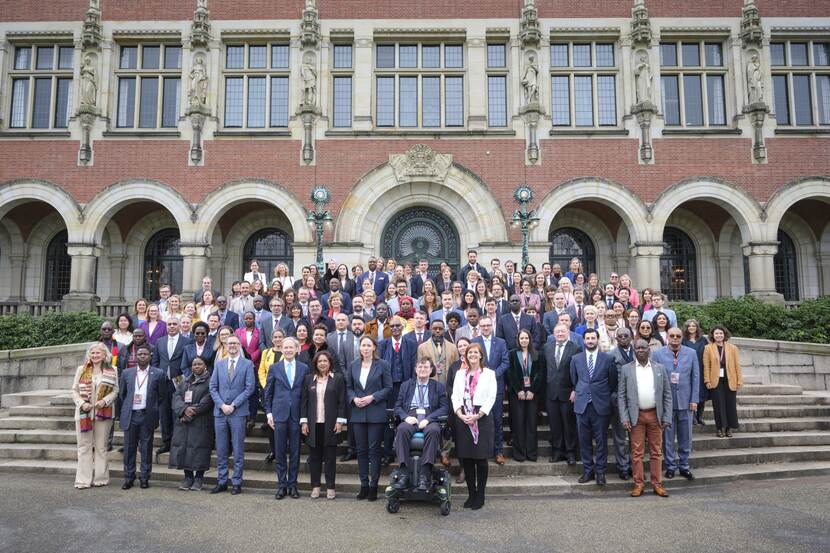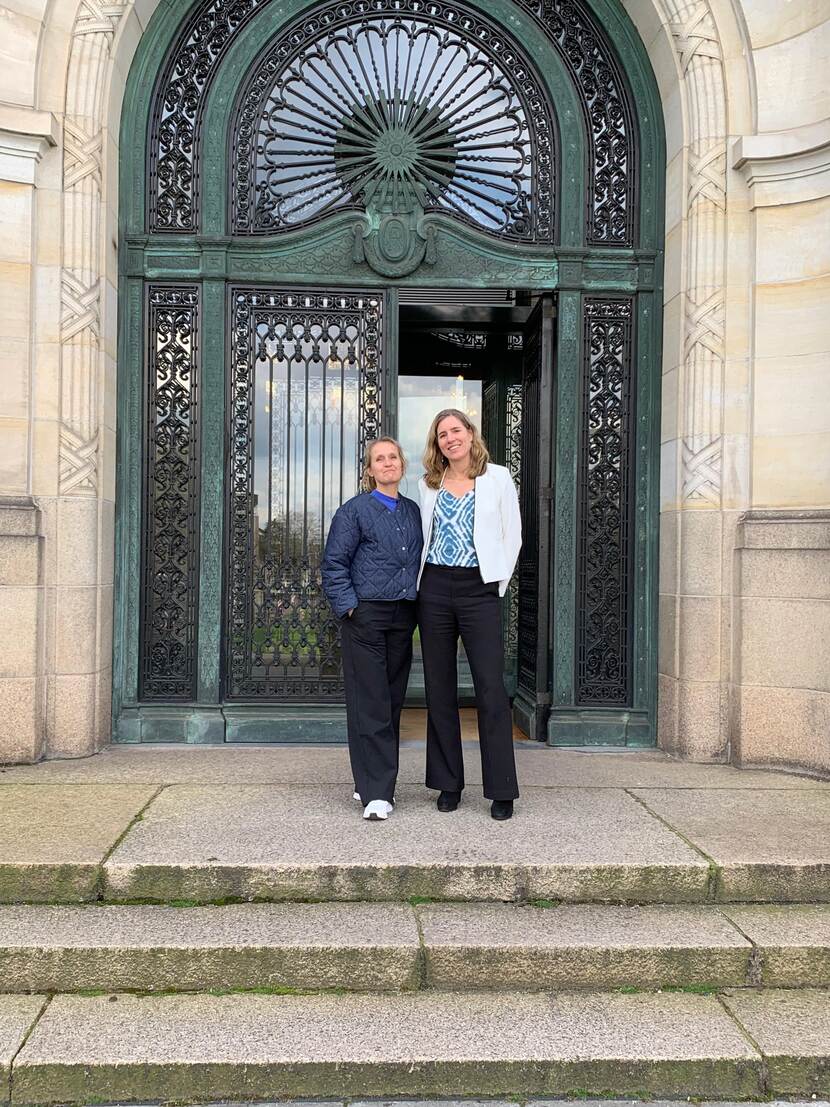International conference in The Hague on conflict-related sexual violence
Weblogs
Sexual violence – sexual abuse, sexual assault and rape – occurs in almost all wars. Often these crimes go unpunished. That is why the Ministry of Foreign Affairs, together with the United Nations, is bringing together prosecutors from all over the world between March 26 and 28 in The Hague. To support each other in bringing such criminals to trial. Prosecutors Mirjam Blom and Jolanda de Boer will represent the Netherlands at this conference. ‘International cooperation is crucial in these cases.’

International Conference of Prosecutors on Accountability for Conflict-Related Sexual Violence
This is the first time that public prosecutors from almost 30 countries are coming together to share experiences with prosecuting the crime of conflict-related sexual violence. The Netherlands is hosting this conference in The Hague, together with the office of the Special Representative of the United Nations Secretary-General on Sexual Violence in Conflict, Pramila Patten.
Mirjam Blom and Jolanda de Boer will take part in the conference as Dutch prosecutors. Ms Blom is a senior prosecutor for international crimes, and Ms De Boer is a senior prosecutor with extensive experience in the areas of human trafficking and organised crime, including with regard to migration.
Major challenges in prosecuting crimes of sexual violence
Most countries in the world agree on the basic legal principles that apply to prosecuting crimes of sexual violence. But it can be difficult to put these principles into practice. Ms Blom said, ‘Investigating sexual violence in conflict situations is complicated and time-consuming. It’s hard to gather enough evidence.’
Particularly in conflict zones, it is not easy to find and interview witnesses. ‘It is often impossible to go to the location in question with a legal team,’ Blom pointed out. Often there are non-governmental organisations (NGOs) on the ground that gather testimony first hand. But using information provided by NGOs can be tricky. The two prosecutors would like to have more freedom to work with NGOs. Ms De Boer said, ‘In cases involving sexual violence in conflict zones, we are dependent on many different parties and organisations.’
More international cooperation is needed
According to these two legal experts, cooperation is the key to achieving results. In their view the International Criminal Court also has a major role to play in this respect. ‘It would be good if the ICC could be involved more often in cases in countries that are members of the Court,’ De Boer noted. ‘The prosecutor of the ICC, Karim Khan, has said the same.’
The Netherlands has a great deal of experience in prosecuting crimes of sexual violence in collaboration with other countries and international organisations. One example of this is the investigation team that is working on crimes against the Yezidi people committed by people who went to Syria and Iraq to settle there under ISIS. Within this team the Netherlands is working with Belgium, France and Sweden. The team is being supported in its efforts by Eurojust, an EU agency that works to promote cooperation between judicial authorities in the fight against serious cross-border crime.
This collaboration has already led to proceedings in all participating countries. In November 2022 the Netherlands arrested a woman who abused a Yezidi woman during her time in Syria.
Another example of successful cooperation involves tackling serious violent crimes against migrants and refugees in Libya. The Netherlands is working on this with Italy, the United Kingdom, Spain and the ICC.
‘Sexual violence is an important subject for investigation in this partnership,’ said Ms De Boer. ‘We’re generous with the information we share on cases.’ Italy and the Netherlands are now prosecuting a number of suspects.
Ms De Boer noted that it would be helpful if certain measures could be taken automatically in order to make such partnerships easier. ‘The way things work now, we have to reinvent the wheel every time. This could be done more efficiently.’

After the conference
Ms Blom and Ms De Boer hope that the conference will be followed by more such initiatives. There is much to be gained from sharing expertise. For example, the Netherlands has a considerable amount of knowledge in the field of forensic medical investigation. ‘I can also envision a situation in which we organise more training courses on specific topics or for specific target groups, like prosecutors,’ said Ms Blom. We can do a lot more things collectively.’
For the Netherlands, combating conflict-related sexual violence is high on the agenda. The Netherlands will continue this cause, both in national and international context. In its approach, the Netherlands focuses strongly on survivors of conflict-related sexual violence. Because not only legal prosecution is important, but also mental healthcare, psychosocial support and sexual health programs. It also means that survivors of sexual violence must be involved in peace and decision-making processes.